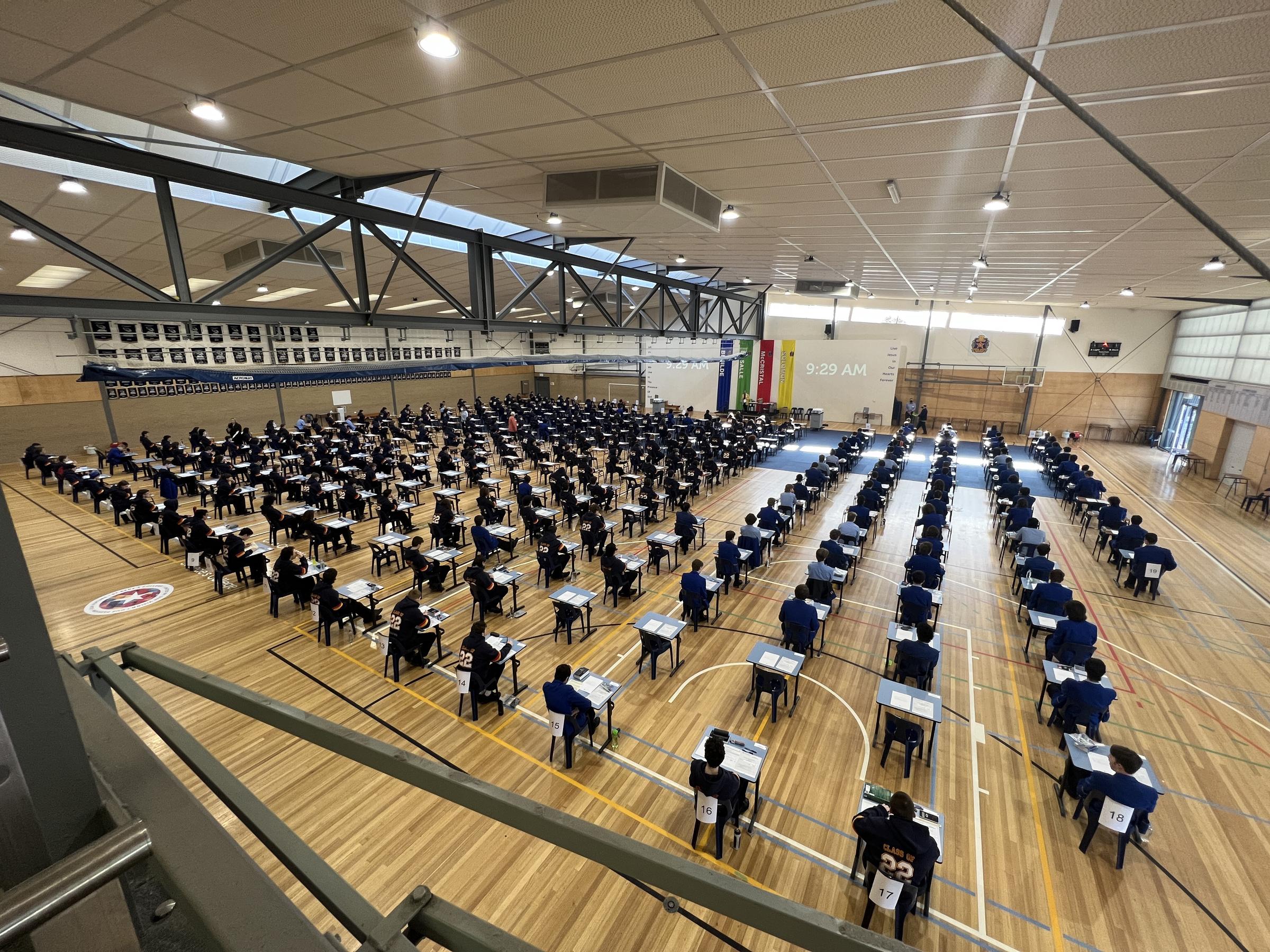Teaching and Learning

Welcome Back to Students and Families
It has been wonderful to welcome students back into classes for the first few weeks of 2023. Following on from a relatively uninterrupted 2022, we have been able to work closely as teachers, as well as with our families, to ensure that we are as ready as we can be for the commencement of the school year. What has impressed greatly has been the willingness and enthusiasm shown by the students of St Bede’s College across both Campuses; there is certainly a vibrancy in the classrooms.
The commencement of a new school year provides an opportunity for either a return to good habits and practises that have served us well in the past or, alternatively, a reset whereby those behaviours that haven’t served us well can be altered. Either way, success is in the hands of each and every one of us and we can, with both support and effort, make improvements in both the short and long term.
Homework and Study
At each year level, the level of independence of students largely dictates how, as parents and carers, we should best support those in our care. The expectations regarding homework at St Bede’s College are clear; students should be doing homework each and every night of the school week. This may constitute learning activities set by the teacher, revision, reading, note taking, studying or working in a study group. What is important is that all students develop both a routine and the discipline required to improve.
Year 7
At this early stage of the year, Year 7 students will be finding the daily organisational demands and movement around the school somewhat challenging. Whilst homework will be set, it will be moderate at this early stage. Parents and carers can best assist by ensuring the basics for learning (books in bags, PE uniform on the correct days, diary use and building organisational habits such as charging of devices) are all in place, as well as setting aside time for homework/study each day. Assistance with creating a homework timetable is also very helpful at this early stage; the expectation is that 1 – 1.5 hours of homework/study is done each day as the year progresses.
Year 8
By Year 8, the expectations of students have grown and, as such, they should be well aware of what is required of them. Students should be consolidating set study and homework time, looking to fill that time with both reinforcement of, and preparation for, learning. Parents and carers need to be aware that Year 8 students should be undertaking between 1 and 1.5 hours of homework/study each day. Year 8 students should be adept at balancing school and associated home study routines with other commitments (such as sport and socialising). Parents and carers are encouraged to ask those in their care for their home study timetable and cast a critical eye over it, assisting them to balance their time as required.
Year 9
Year 9 is usually the time when students become far more independent than previous school years and express the want for less parental involvement. Parents and carers are encouraged to stay involved and partner with their child to assist, particularly from the perspective of maintaining a suitable routine. Sometimes this will be encouragement and nudging to make refinements, whilst at other times it may require a firmer, less negotiated approach.
With the students having their first taste of semester exams, the need to devote time and get regular repeated exposure to necessary learning is paramount. Transferring important learning onto cue cards and reviewing these cards regularly is a great technique and one that many students employ; parents and carers can also check and see that they are done as an accountability. Endeavouring to devote the expected 1.5 – 2 hours per day to study can be challenging, however incorporating study and memorisation techniques will be useful for a significant time after Year 9.
Year 10
The expectations for Year 10 students is that they are devoting between 2 and 2.5 hours to homework and study each school day. Year 10 students are generally responsible and independent enough to remain at school or go to a local library to study with others in order to balance commitments, and often choose to do so.
Many students have a part time job by this stage; this is encouraged as it teaches responsibility and commitment, however it is recommended that students work no more than 5 hours per week. Parents and carers are encouraged to ensure that balance between school, work and other commitments is maintained and that students are eating well and getting quality sleep.
Year 11 and 12
For our senior students, study skills should be well honed and homework and study a part of life. Each subject undertaken requires between 3 and 5 hours per week of extra study and work; this can include reading, completing past papers, preparing for SACs, working in a study group, catching up with teachers and the like. Many senior students do not devote enough time to reading their English texts; these should be both read and annotated and will go a long way towards improving outcomes in English.
A consistent approach is vital as the volume of material in the senior years is significant. As a parent, creating the space and ensuring that study and/or homework is done each and every day is vital for success and will assist those in your care greatly. Additionally, checking and advising on when to take a break or how to look after oneself is recommended. Unfortunately, avoiding the feeling of pressure is not possible if completing VCE in the manner required; it is designed to be a challenging undertaking.
The relationship between school and home is crucial and, whilst many parents may not possess the subject knowledge to support student endeavours, helping them to maintain routine and develop habits that enhance learning are very helpful. Academic success requires partnership where all parties work together - not in opposition - and we encourage you to contact us if you have any questions. We look forward to many great successes across the year.
Brenden Mair
Deputy Principal
Teaching and Learning
